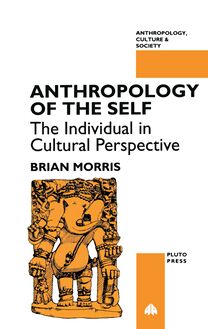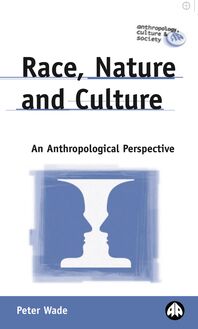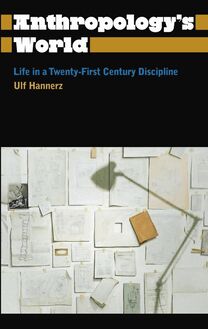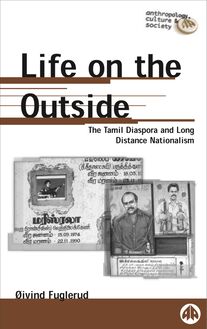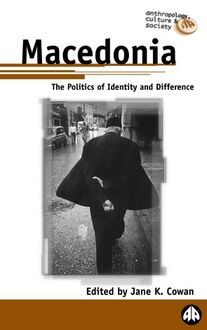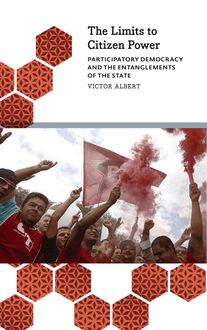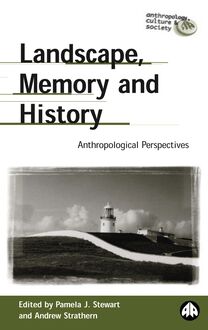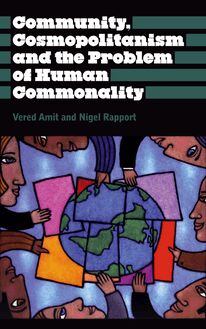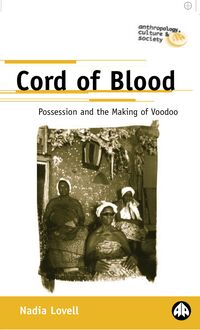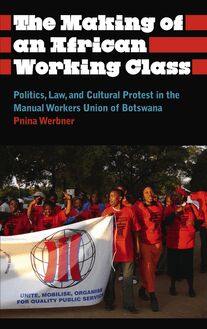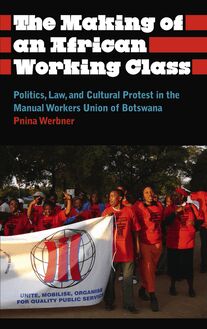-
 Univers
Univers
-
 Ebooks
Ebooks
-
 Livres audio
Livres audio
-
 Presse
Presse
-
 Podcasts
Podcasts
-
 BD
BD
-
 Documents
Documents
-
- Cours
- Révisions
- Ressources pédagogiques
- Sciences de l’éducation
- Manuels scolaires
- Langues
- Travaux de classe
- Annales de BEP
- Etudes supérieures
- Maternelle et primaire
- Fiches de lecture
- Orientation scolaire
- Méthodologie
- Corrigés de devoir
- Annales d’examens et concours
- Annales du bac
- Annales du brevet
- Rapports de stage
La lecture à portée de main
Vous pourrez modifier la taille du texte de cet ouvrage
Découvre YouScribe en t'inscrivant gratuitement
Je m'inscrisDécouvre YouScribe en t'inscrivant gratuitement
Je m'inscrisEn savoir plus
Vous pourrez modifier la taille du texte de cet ouvrage
En savoir plus

Description
Rubbish. Waste. Trash. Whatever term you choose to describe the things we throw away, the connotations are the same; of something dirty, useless and incontrovertibly 'bad'. But does such a dismissive rendering mask a more nuanced reality?
In Rubbish Belongs to the Poor, Patrick O'Hare journeys to the heart of Uruguay's waste disposal system in order to reconceptualize rubbish as a 21st century commons, at risk of enclosure. On a giant landfill site outside the capital Montevideo we meet the book's central protagonists, the 'classifiers': waste-pickers who recover and recycle materials in and around its fenced but porous perimeter. Here the struggle of classifiers against the enclosure of the landfill, justified on the grounds of hygiene, is brought into dialogue with other historical and contemporary enclosures - from urban privatizations to rural evictions - to shed light on the nature of contemporary forms of capitalist dispossession.
Supplementing this rich ethnography with the author's own insights from dumpster diving in the UK, the book analyses capitalism's relations with its material surpluses and what these tell us about its expansionary logics, limits and liminal spaces. Rubbish Belongs to the Poor ultimately proposes a fundamental rethinking of the links between waste, capitalism and dignified work.
Figures
Series preface
Acknowledgements
Abbreviations
Introduction: ‘La Basura Es de los Pobres’ – ‘Rubbish Belongs to the Poor’
1. ‘All because We Bought Those Damn Trucks’: Hygienic Enclosure and Infrastructural Modernity
2. The Mother Dump: Montevideo’s Landfill Commons
3. Classifiers’ Kinship and Embedded Waste
4. Care, (Mis)Classification, and Containment at the Aries Recycling Plant
5. Precarious Labour Organising and ‘Urban Alambramiento’
Conclusion: Circular Economies, New Enclosures, and the Commons Sense
Notes
References
Index
Sujets
Informations
| Publié par | Pluto Press |
| Date de parution | 20 février 2022 |
| Nombre de lectures | 0 |
| EAN13 | 9781786807496 |
| Langue | English |
| Poids de l'ouvrage | 2 Mo |
Informations légales : prix de location à la page 0,1348€. Cette information est donnée uniquement à titre indicatif conformément à la législation en vigueur.
Extrait
Rubbish Belongs to the Poor
A compelling ethnography of Uruguayan waste pickers. This important intervention asks who has the economic and moral right to the surplus and excess that drive capitalism. As O Hare shows, the waste pickers lay claim to this resource as part of a dialogue with environmental and social justice, through practices of care and communing.
-Catherine Alexander, Department of Anthropology, University of Durham
Written with a clear and convincing prose, this book makes a major contribution to and advances waste studies, environmental studies, and the anthropology of infrastructure by updating our extant theories of labour, the economy and the commons. It will not only serve as a useful teaching resource but also as a model for future scholars.
-Zsuzsa Gille, Professor of Sociology and Director of Global Studies, University of Illinois at Urbana-Champaign
Activist scholarship of the highest calibre. This is an intimate, humorous and razor-sharp analysis of the politics of urban waste. O Hare mounts a passionate defence of waste as commons, in the face of corporate and state initiatives to reconfigure waste as resource.
-Penny Harvey, Professor of Social Anthropology, University of Manchester
By lingering with waste workers in Montevideo, Uruguay, O Hare intricately unfolds the changing conditions of rubbish as it circulates through scavenging practices, urban infrastructures, circular economies, and global property structures. Rubbish Belongs to the Poor offers a radically different view of how to shape environmental citizenships.
-Jennifer Gabrys, Chair in Media, Culture and Environment, University of Cambridge
Radically rethinks the commons, urban infrastructure and waste in ways that hold significant political implications for our time. Patrick O Hare calls us to take seriously the work of waste reclaimers not as a problem in need of a solution, but rather, as a source of a new kind of politics.
-Kathleen Millar, Department of Sociology and Anthropology, Simon Fraser University
Anthropology, Culture and Society
Series Editors: Jamie Cross, University of Edinburgh, Holly High, Deakin University and Joshua O. Reno, Binghamton University
Recent titles:
The Limits to Citizen Power: Participatory Democracy and the Entanglements of the State V ICTOR A LBERT
Vicious Games: Capitalism and Gambling R EBECCA C ASSIDY
Anthropologies of Value E DITED BY L UIS F ERNANDO A NGOSTO -F ERRANDEZ AND G EIR H ENNING P RESTERUDSTUEN
Ethnicity and Nationalism: Anthropological Perspectives Third Edition T HOMAS H YLLAND E RIKSEN
Small Places, Large Issues: An Introduction to Social and Cultural Anthropology Fourth Edition T HOMAS H YLLAND E RIKSEN
What is Anthropology? Second Edition T HOMAS H YLLAND E RIKSEN
Deepening Divides: How Territorial Borders and Social Boundaries Delineate Our World E DITED BY D IDIER F ASSIN
At the Heart of the State: The Moral World of Institutions D IDIER F ASSIN, ET AL .
Anthropology and Development: Challenges for the Twenty-first Century K ATY G ARDNER AND D AVID L EWIS
Children of the Welfare State: Civilising Practices in Schools, Childcare and Families L AURA G ILLIAM AND E VA G ULL V
Faith and Charity: Religion and Humanitarian Assistance in West Africa E DITED BY M ARIE N ATHALIE L EBLANC AND L OUIS A UDET G OSSELIN
Private Oceans: The Enclosure and Marketisation of the Seas F IONA M CCORMACK
Grassroots Economies: Living with Austerity in Southern Europe E DITED BY S USANA N AROTZKY
The Rise of Nerd Politics: Digital Activism and Political Change J OHN P OSTILL
Base Encounters: The US Armed Forces in South Korea E LISABETH S CHOBER
Ground Down by Growth: Tribe, Caste, Class and Inequality in Twenty-First-Century India A LPA S HAH , J ENS L ERCHE, ET AL
Watershed Politics and Climate Change in Peru A STRID B. S TENSRUD
When Protest Becomes Crime: Politics and Law in Liberal Democracies C AROLIJN T ERWINDT
Race and Ethnicity in Latin America Second Edition P ETER W ADE
Rubbish Belongs to the Poor
Hygienic Enclosure and the Waste Commons
Patrick O Hare
First published 2022 by Pluto Press
New Wing, Somerset House, Strand, London WC2R 1LA
www.plutobooks.com
Copyright Patrick O Hare 2022
The right of Patrick O Hare to be identified as the author of this work has been asserted in accordance with the Copyright, Designs and Patents Act 1988.
British Library Cataloguing in Publication Data
A catalogue record for this book is available from the British Library
ISBN 9780745341408 Paperback
ISBN 9780745341385 Hardback
ISBN 9781786807489 PDF eBook
ISBN 9781786807496 EPUB eBook
This book is printed on paper suitable for recycling and made from fully managed and sustained forest sources. Logging, pulping and manufacturing processes are expected to conform to the environmental standards of the country of origin.
Typeset by Stanford DTP Services, Northampton, England
Simultaneously printed in the United Kingdom and United States of America
Contents
Figures
Series preface
Acknowledgements
Abbreviations
Introduction: La Basura Es de los Pobres - Rubbish Belongs to the Poor
1 All because We Bought Those Damn Trucks : Hygienic Enclosure and Infrastructural Modernity
2 The Mother Dump: Montevideo s Landfill Commons
3 Classifiers Kinship and Embedded Waste
4 Care, (Mis)Classification, and Containment at the Aries Recycling Plant
5 Precarious Labour Organising and Urban Alambramiento
Conclusion: Circular Economies, New Enclosures, and the Commons Sense
Notes
References
Index
Figures
1 The roadblock in the El Cerro neighbourhood
2 The author with clasificadores during a football match in the centre of Flor de Maro as
3 Location and estimated operational dates of Montevideo s landfills ( canteras ) and usinas (waste plants)
4 Protesting waste-pickers make their way through Montevideo s old town as a worker for the privatised city centre sweeping and waste collection service looks on
5 The Felipe Cardoso waste complex
6 Gateadores removing metal from the valuable LAISA steel forge waste truck
7 Selva in front of her home on Camino Felipe Cardoso, alongside her grandson and holding a portrait of her grandmother, who emigrated from Catalonia
8 Part of the fence at Felipe Cardoso, with damaged waste containers on the inside
9 Gendered lifting practices at COFECA
10 A pile of requeche recovered from the conveyor belt at Aries
11 Carreros on a 2013 UCRUS march protesting at the Junta Departamental
Series Preface
As people around the world confront the inequality and injustice of new forms of oppression, as well as the impacts of human life on planetary ecosystems, this book series asks what anthropology can contribute to the crises and challenges of the twenty-first century. Our goal is to establish a distinctive anthropological contribution to debates and discussions that are often dominated by politics and economics. What is sorely lacking, and what anthropological methods can provide, is an appreciation of the human condition.
We publish works that draw inspiration from traditions of ethnographic research and anthropological analysis to address power and social change while keeping the struggles and stories of human beings centre stage. We welcome books that set out to make anthropology matter, bringing classic anthropological concerns with exchange, difference, belief, kinship and the material world into engagement with contemporary environmental change, capitalist economy and forms of inequality. We publish work from all traditions of anthropology, combining theoretical debate with empirical evidence to demonstrate the unique contribution anthropology can make to understanding the contemporary world.
Jamie Cross, Holly High and Joshua O. Reno
Acknowledgements
This book was made possible by the openness, trust, and friendship of the clasificadores of Felipe Cardoso and its surrounding neighbourhoods of Flor de Maro as and the Cruz de Carrasco. To Marcos Borges and Alejandra Mart nez in particular: thank you for being such wonderful neighbours, and making us feel so at ease. I am full of admiration for your generosity, hard work, and good humour as you raise your beautiful family. There are many other families in COVIFU, and regular visitors to the cooperative such as the M ndez family and cousin Checo , who also opened their doors to us, have my utmost respect, and made of Montevideo a place that will always feel like home. Thank you to the clasificadores at the cantera, at COFECA, at the Planta Aries , and beyond who allowed me to work alongside them even though I couldn t carry a bols n to save my life. I am also grateful to the tireless campaigners of the UCRUS who allowed me to join their meetings at the Galp n de Corrales, their marches and their neighbourhood sorties. My thanks also go to the staff at the Intendencia de Montevideo, the Ministerio de Desarrollo Social (MIDES), and all the other institutions and NGOs such as Juventud Para Christo who allowed me to conduct fieldwork inside and alongside their organisations.
It will of course not be possible to name everyone who assisted with the research out of which this book grew but let me try to name a few of them: the extended Ponce de Le n family, the Almada family, the Umpi rrez family, the lovely Santos clan, the P rez family, the Mora family, the Juvencio family, Veronica Rodr guez, Jorge Meoni, Nacho, Gabriel and the rest of the team at Los Treboles, Ra l and Ana, Moncho and Jennifer, Jorge and Luj n, Paula and Tungi, Julian and Laura, Iris, the Hermanas Franciscanas who live and do great work in the Cruz de Carrasco, Nito, Esteban and the boys from Joaqu n de la Sagra, Selva, Uncle Luca, Fabi, and the other neighbours from the Felipe Cardoso asentamiento, and all the housing cooperative kids who filled our house with paint, laughter, and fun. Thanks to Ramita, Coco, and No o for letting is hang out with th
-
 Univers
Univers
-
 Ebooks
Ebooks
-
 Livres audio
Livres audio
-
 Presse
Presse
-
 Podcasts
Podcasts
-
 BD
BD
-
 Documents
Documents
-
Jeunesse
-
Littérature
-
Ressources professionnelles
-
Santé et bien-être
-
Savoirs
-
Education
-
Loisirs et hobbies
-
Art, musique et cinéma
-
Actualité et débat de société
-
Jeunesse
-
Littérature
-
Ressources professionnelles
-
Santé et bien-être
-
Savoirs
-
Education
-
Loisirs et hobbies
-
Art, musique et cinéma
-
Actualité et débat de société
-
Actualités
-
Lifestyle
-
Presse jeunesse
-
Presse professionnelle
-
Pratique
-
Presse sportive
-
Presse internationale
-
Culture & Médias
-
Action et Aventures
-
Science-fiction et Fantasy
-
Société
-
Jeunesse
-
Littérature
-
Ressources professionnelles
-
Santé et bien-être
-
Savoirs
-
Education
-
Loisirs et hobbies
-
Art, musique et cinéma
-
Actualité et débat de société
- Cours
- Révisions
- Ressources pédagogiques
- Sciences de l’éducation
- Manuels scolaires
- Langues
- Travaux de classe
- Annales de BEP
- Etudes supérieures
- Maternelle et primaire
- Fiches de lecture
- Orientation scolaire
- Méthodologie
- Corrigés de devoir
- Annales d’examens et concours
- Annales du bac
- Annales du brevet
- Rapports de stage
